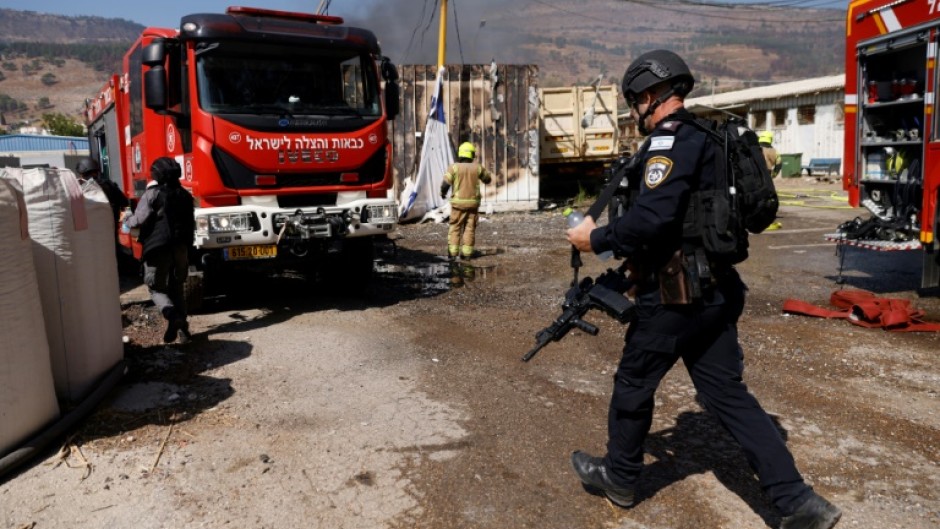Israel said it carried out dozens of air strikes against Hezbollah on Tuesday, after hundreds were killed the day before when clashes sparked by the nearly year-long Gaza war intensified.
Lebanon said Israeli strikes killed at least 558 people, including 50 children, on Monday -- the deadliest day of violence in the country since the 1975-90 civil war.
Longtime foes Hezbollah and Israel have been locked in near-daily cross-border exchanges of fire since Palestinian militant group Hamas lauched an unprecedented attack on Israel on October 7.
The Hamas attack sparked a war in Gaza that has drawn in Hezbollah and other Iran-backed militants from across the Middle East, including Iraq and Yemen.
Lebanese Health Minister Firass Abiad, who gave Monday's toll of 558 dead, said the "vast majority, if not all, of those killed in yesterday's attacks were unarmed people in their homes".
His office said another six people were killed Tuesday in a strike on south Beirut.
Israel said later it "eliminated" Hezbollah's rocket forces commander Ibrahim Kobeissi in a strike on the Lebanese capital. A source close to Hezbollah also said Kobeissi had been killed.
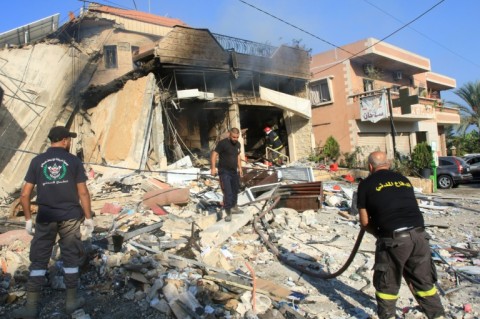
United Nations Secretary-General Antonio Guterres warned, in an address to the UN General Assembly in New York, that Lebanon was nearing a critical point.
"We should all be alarmed by the escalation. Lebanon is at the brink," he said, while cautioning against "the possibility of transforming Lebanon (into) another Gaza".
President Joe Biden of the United States, Israel's closest ally, warned against a full-blown war in Lebanon, in his speech to the General Assembly.
"Full-scale war is not in anyone's interest. Even though the situation has escalated, a diplomatic solution is still possible," Biden added.
- Netanyahu defiant -
Despite pressure mounting on Israel to halt its deadly strikes, Prime Minister Benjamin Netanyahu vowed to press on with the withering Israeli air campaign against Hezbollah.
"We will continue to hit Hezbollah... the one who has a missile in his living room and a rocket in his home will not have a home," he said.
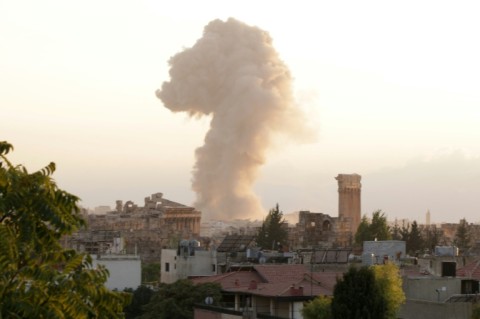
Hezbollah said it launched volleys of missiles at Israeli military bases Tuesday, hours after 180 of its projectiles crossed into Israel, sending people in the city of Haifa running for cover.
The Israeli military said more than 50 projectiles were fired into northern Israel in less than 10 minutes, adding it intercepted most of them.
It said it had carried out more strikes on Hezbollah infrastructure.
It also said it struck Beirut for a second consecutive day, with a Lebanese security source confirming the strike on a Hezbollah stronghold.
Hezbollah said later it targeted four more Israeli military sites, including a military camp south of Haifa, with three "Fadi" rockets.
The UN said tens of thousands of Lebanese had fled their homes since Monday, in the face of the intensifying Israeli bombardment.
"Tens of thousands of people were forced from their homes yesterday and overnight, and the numbers continue to grow," UN refugee agency spokesman Matthew Saltmarsh said.
"The toll on civilians is unacceptable," he added.
- 'Day of terror' -
Thuraya Harb, a 41-year-old housewife at a makeshift centre for displaced families in Beirut, described Tuesday as a "day of terror".
"I didn't want to leave my home, but the children were scared," the mother of four said, adding that her family fled "with nothing but the clothes on our backs".
Not all the displaced stayed in Lebanon. A security official in neighbouring Syria told AFP that some 500 people had crossed the border, fleeing the bombing.
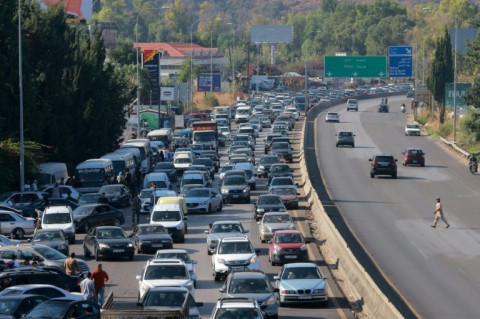
Hezbollah backer Iran, which arms, trains and funds the group, condemned the raids, with its president, Masoud Pezeshkian, saying its ally "cannot stand alone" against Israel.
"We must not allow Lebanon to become another Gaza at the hands of Israel," he said.
Other leaders have expressed alarm over the rapid escalation, with the European Union's top diplomat Josep Borrell warning "we are almost in a full-fledged war".
A US official, speaking on condition of anonymity, said Washington opposed an Israeli ground invasion targeting Hezbollah and had "concrete ideas" on how to de-escalate the crisis.
- 'New phase' -
Israeli armed forces chief Herzi Halevi said Monday's strikes hit combat infrastructure Hezbollah had been building for two decades, while Defence Minister Yoav Gallant called Monday "a significant peak" in the operation.
"This is the most difficult week for Hezbollah since its establishment –- the results speak for themselves," he said.
War in Gaza began with Hamas's October 7 attack on Israel, which resulted in the deaths of 1,205 people, mostly civilians, according to an AFP tally based on Israeli official figures that include hostages killed in captivity.
Of the 251 hostages seized by militants, 97 are still held in Gaza, including 33 the Israeli military says are dead.
Israel's retaliatory military offensive has killed at least 41,467 people in Gaza, most of them civilians, according to figures provided by the Hamas-run territory's health ministry. The UN has described the figures as reliable.
Since the start of the Gaza war, clashes along the Lebanon-Israel border have forced tens of thousands of people on both sides to flee their homes.
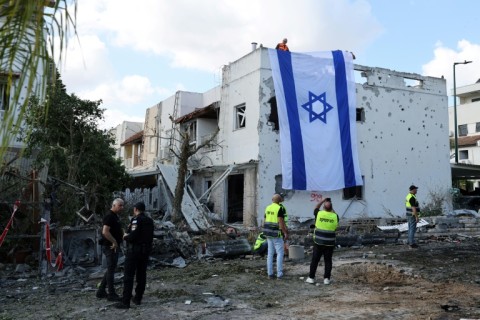
The violence between Israel and Hezbollah escalated dramatically last week, when coordinated communications device blasts that the militants blamed on Israel killed 39 people and wounded almost 3,000.
Then on Friday, an Israeli strike on southern Beirut, a bastion of Hezbollah, killed its elite Radwan Force commander, Ibrahim Aqil.
An Israeli military official, who cannot be identified, said the military is seeking to "degrade threats" from Hezbollah, push them back from the border and destroy infrastructure.
"This is an extremely dangerous situation, but one that for me still leaves room for diplomacy to avoid the worst," said Israeli political analyst Michael Horowitz.
By Aya Iskandarani, With Chloe Rouveyrolles-bazire In Haifa And Benoit Finck In Jerusalem

